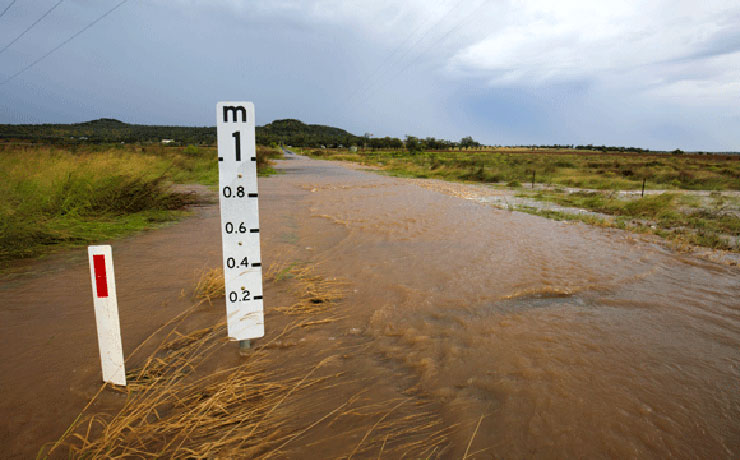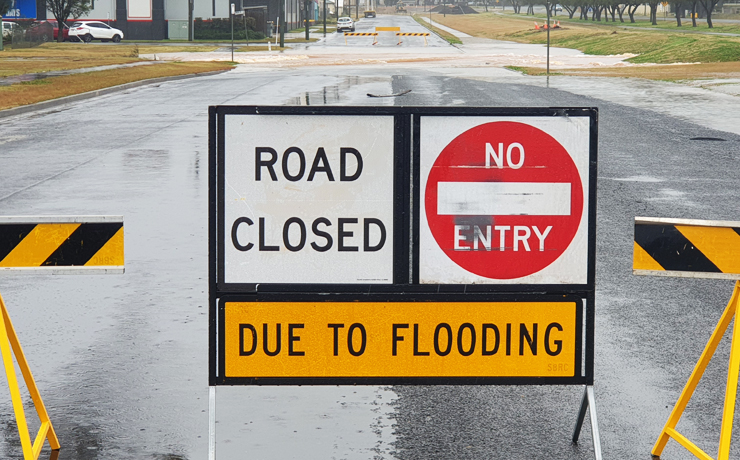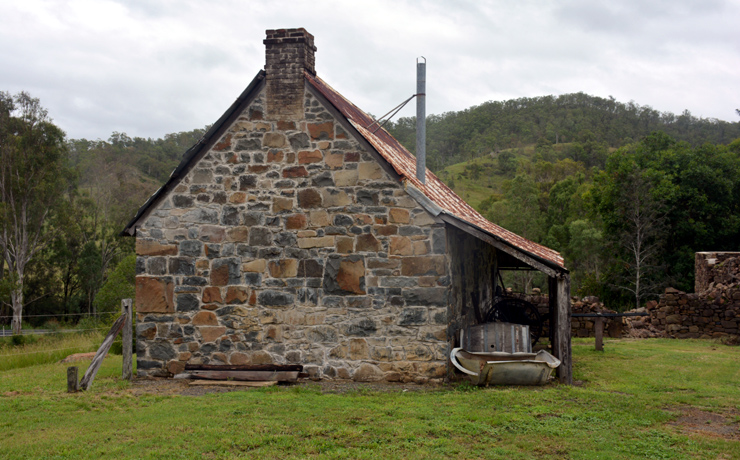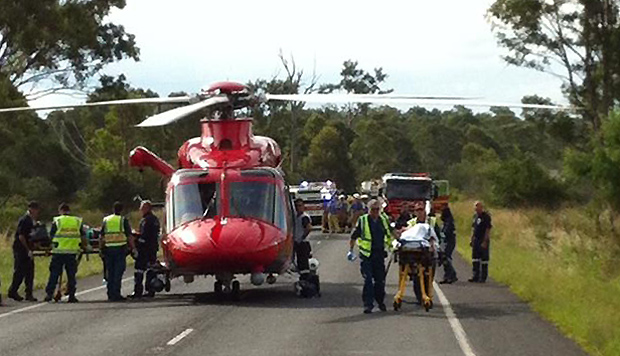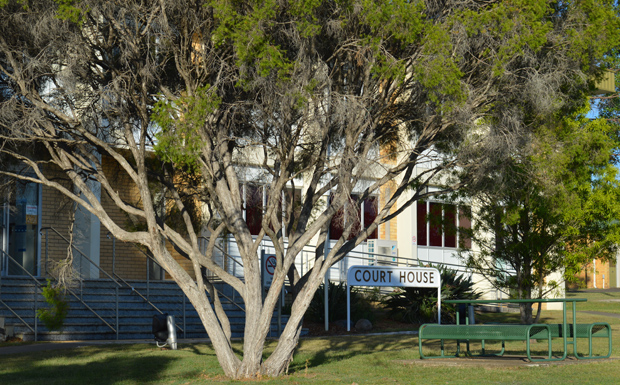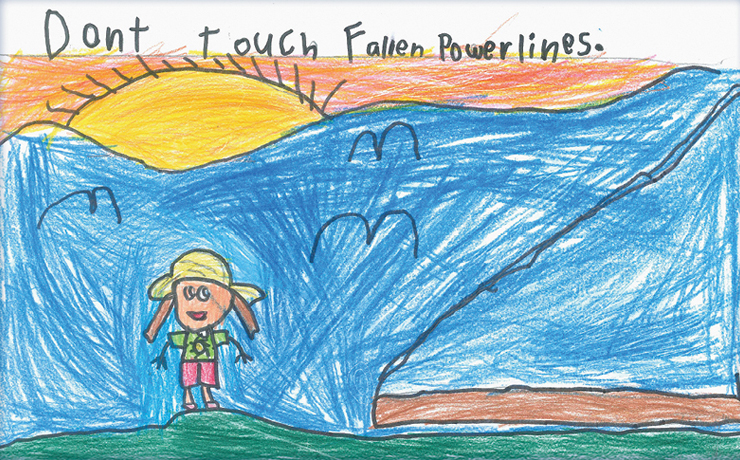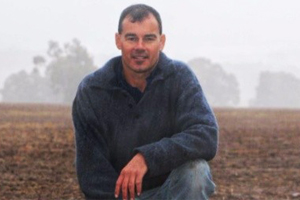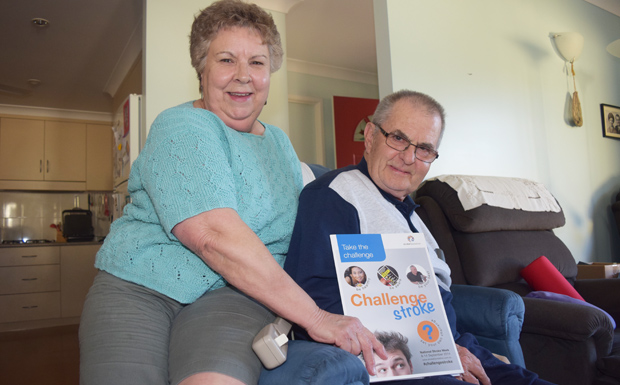
September 9, 2014
Retired South Burnett GP – and stroke survivor – Dr Brad Butwell wants people to memorise the acronym F.A.S.T.
It might just save a life, just like his wife Ann helped to save his life when he had his stroke …
F.A.S.T. stands for Face, Arms, Speech, Time.
- Face – Check their face. Has their mouth drooped?
- Arms – Can they lift BOTH arms?
- Speech – Is their speech slurred. Do they understand you?
- Time – TIME is critical. If you see any of these signs of stroke, call Triple 0 immediately!
Dr Butwell is now 73. He had his stroke on January 15, 2010 but, he admits, “I don’t remember a thing about it”.
He had some of the risk factors, including high blood pressure, but his hypertension was under control and he had been having regular check-ups with his own doctor every three or four months since he retired in 2007.
His wife Ann thinks the stroke may have been linked to a head injury he suffered a few years earlier when he was knocked down by a car on a pedestrian crossing in Kingaroy. Dr Butwell is less sure, but the truth is no one will probably ever know why on that Friday morning he suffered a sudden haemorrhagic stroke in the right hemisphere of his brain.
The bleeding damaged his brain tissue, affecting the left side of his body, leaving his left arm and leg paralysed.
“It was a Friday morning and we were due to do our Meals on Wheels run,” Ann recalled.
“Brad had just brought in a cup of tea, our morning ritual.
“He started to breathe really strangely. I said ‘Brad are you ok?’.”
The former nurse knew he wasn’t. She recognised the symptoms of a stroke straight away and immediately rang for an ambulance.
“I then had to ring someone from Meals on Wheels …”
Dr Butwell was flown by helicopter to Brisbane and overnight his life changed.
He spent three weeks in a stroke unit and then four and a half months at GARU (the Geriatric and Rehabilitation Unit) in Brisbane.
Then there was hours and hours of occupational therapy and physiotherapy …
The couple are just grateful that the stroke happened when it did. When he was not alone in the kitchen and could have fallen to the floor, and when he was not driving the car …
There are two major types of strokes: ischaemic (caused by a clot) and haemorrhagic (bleeding caused by a burst blood vessel).
Until medical staff can determine which type of stroke has occurred, they cannot begin treatment… another reason why it is very important to act FAST if a stroke is suspected.
“About 80 per cent of strokes are ischaemic strokes, and if you get treated quickly you will often get a full recovery,” Dr Butwell said.
“If you feel weakness in an arm or leg, or a funny feeling, get to hospital so you can get help as quickly as possible.”
However, emergency staff can’t just assume an ischaemic stroke had occurred; if Dr Butwell had been treated for this type, it would have killed him.
Dr Butwell said stroke was the second major killer in Australia after heart attacks, the largest cause of disability and the reason for a significant number of admissions to nursing homes.
“There are 437,000 Aussies disabled just like me,” he said. “Some better, some worse.”
“Here are a few facts and statistics to digest. Somewhere in Australia, someone is having a stroke every 10 minutes which equates to 1000 a week.
“In 2010, the year I had my stroke totally without warning, 11,737 people died of stroke.
“I was very nearly the 11,738th if it had not been for the fast rapid, action of my wife who knew exactly what was happening, along with the immediate service of the QAS, the prompt assessment by the Kingaroy Hospital in evacuating me out by helicopter to the stroke unit at Royal Brisbane, where the medical team and nursing staff literally kept me alive.
“The key to survival was fast, fast, fast …”
National Stroke Week runs from September 8-14.
For more information about strokes, visit the Stroke Foundation website












